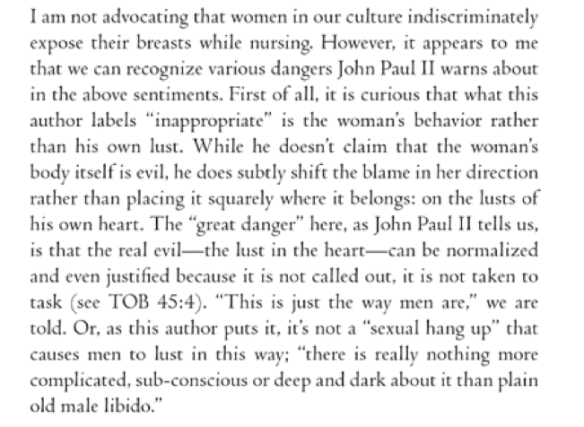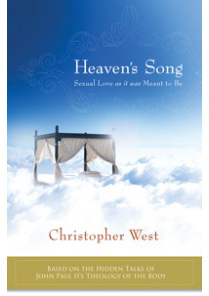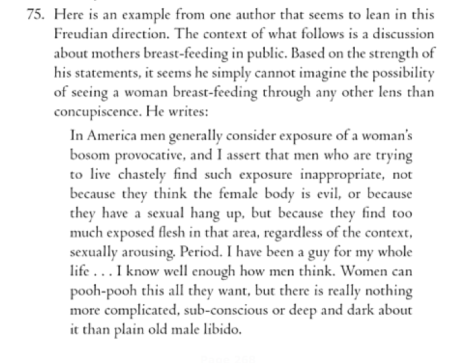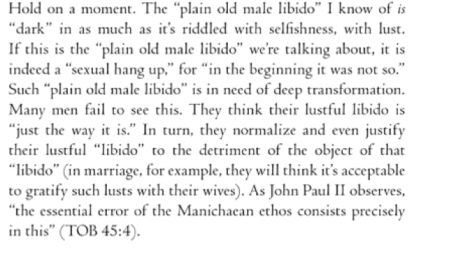A tremendous honor.
Tag Archives: Dawn Eden
Link
Read Dawn Eden and David Gibson.
Peace for the Afflicted
The Church never abandons her children, especially those who suffer. Dawn Eden, through her book My Peace I Give You, continues to be an instrument of Christ for the healing of those who have suffered sexual abuse.
Anthony Esolen, a writer I greatly admire, has written an essay in defense of the innocence of children inspired by reading Dawn’s book. And The Catholic Herald picked up on her work, occasioned by her recent speaking engagements in the UK.
Her she is speaking on the healing of memory, a subject, which I believe is terribly important:
Dawn Eden Planting Seeds in the New York Times Magazine
The New York Times Magazine published a story by Alexandra Molotkow about my friend Dawn Eden last week, while I was on retreat: ‘She Told Herself She Couldn’t Die Because She Had To Write His Story.’
Dawn has done much to draw to the saints those who are suffering, very often without God or someone close to them who cares. I know St. Maximilian Kolbe, whose feast we celebrate today, is a special friend to her because he led her to the Catholic faith.
We all need healing through the saints. We need miracles to bring light into the darkest places and most difficult circumstances. You can get her latest book precisely on this topic here.
Rorate Caeli and Marcelo Gonzalez Dig Themselves In Deeper
Marcelo Gonzalez is the Argentinian blogger who was the source for Rorate Caeli’s report on the status of the Extraordinary Form of the Mass in Beunos Aires under Cardinal Bergoglio. Dawn Eden pointed, from one of Gonzalez’s articles that he is a Holocaust denier and also called his report on the status of EF under Cardinal Bergoglio a “smear.” A controversy has ensued.
Rorate Caeli has defended the accuracy of Gozalez’s report and seems to be correct that Cardinal Bergoglio provided only one priest for the EF, who celebrated only a “hybrid mass.” Apparently, this was unacceptable to the Latin Mass community and so poorly attended that it was discontinued. But the report of Gozalez, as reproduced by Rorate Caeli, begins thus:
Of all the unthinkable candidates, Jorge Mario Bergoglio is perhaps the worst. Not because he openly professes doctrines against the faith and morals, but because, judging from his work as Archbishop of Buenos Aires, faith and moral seem to have been irrelevant to him.
Updated: Antisemitism Cloaked in Lace and Brocade
Rorate Caeli is engaging in one huge piece of hypocrisy with its post entitled: “Our supreme priority is love.” Dawn Eden has taken RC’s reporting to task because of its use of the opinions of an antisemitic blogger, and now RC accuses her of being an uncharitable ideologue.
RC is a clearing house for every spiteful opinion on the postconciliar Church, and no one is exempt as a target, including Pope Benedict, who now RC claims as their great ideal—the man who reached out the SSPX in charity and has been despised by the progressives for doing so. Now RC claims to share in the Pope Emeritius’ persecution because like him, RC is a the promoter of pastoral charity towards those most marginalized. Like Pope Benedict, RC wants “to educate with love.”
What?
In Honor of the Blessed Virgin Mary for the Virtue of Purity
Matt McGuiness has posted his second installment of “A Second Look at Porn.” He was criticized a great deal for part one, by Dawn Eden, Kevin Obrien, Kevin Tierney, and yours truly. Dawn Eden has already posted her comments on the new piece on her blog at Patheos: “Confession is Not a Waste of Time.” An excellent contribution.
I am in agreement with most of what McGuiness says. However, in the interests of making an argument for something important, he does what apologists too often do, which is to minimize those things which are not the thing he wants to emphasize. McGuiness wants to emphasize the education of desire and an appreciation for what he calls “elementary experience.” In the process, however, he caricatures elements of the ascetical life like prayer, penance and the sacraments.
If the multinational corporations have a “wonderful plan” for our lives (and they do), sometimes church people offer us “solutions” that alienate us from ourselves no less than the spinning wheel of production and consumption. Some within the Church will tell us to ignore the infinite need that makes our hearts restless and just plunge into Catholic practices and pious devotions. Never mind the meaning, “Just do it.” Here’s a sample checklist: start going to daily Mass, pray the rosary, make a holy hour, try this novena, frequent confession more often, do some twelve step program, go to a Catholic conference, be virtuous. You get the picture.
The Saints and the Healing of Memory
Dawn Eden recently published a wonderful book on the topic of healing from the wounds of sexual abuse. My Peace I Give You: Healing Sexual Wounds with the Help of the Saints. This new publication follows her highly successful The Thrill of the Chaste: Finding Fulfillment While Keeping Your Clothes On. Dawn explains the inspiration behind her new book, as flowing from her experiences of speaking to people who had read Thrill of the Chaste. In that book she wrote of her own journey from a life of promiscuity to discovering the beauty and joy of chastity as opposed to the destructive dead-end that is lust. Dawn recounts how many who were not convinced by her arguments in Thrill of the Chaste were angry and hurt, feeling that she was judging them. She found that many of them had been a victim of sexual abuse at some time in their life. Dawn also experienced sexual abuse as a child and knows how abuse victims tend to blame themselves for what happened to them.
In an interview with AirMaria (21:00-ff) back in 2009, Dawn explained how it was that devotion to the Blessed Mother can be huge factor in bringing about transformation in a life plagued by sexual temptation. She relates that after she had written Thrill of the Chaste she would get into arguments on her blog with feminist bloggers over the subject Christianity and chastity specifically. Many times the feminist bloggers manifested a great deal of anger, which they directed at Dawn because they felt that she was judging them, or that Church, because of her doctrine on chastity, was judging them. Ironically, because Our Lady and purity are so closely identified, she also found that those living and impure life also had an aversion to Marian devotion. But the purity of Our Lady is not a judgment, but a living fire that is purifying, liberating and welcoming. If the just father embracing his prodigal son is the image of Divine Mercy, then the Immaculate Virgin Mary is the image of pure love delivering us from selfishness and at the same time showing us unconditional compassion. This is the Marian message that we need to communicate to the world about chastity.
One of the great attractions of devotion to Our Lady and, in particular the sacramental of the Miraculous Medal, is the compassion of Mary, who as Mother of Jesus is also our Mother, and who is present to Her children not to judge but to nurture, heal and affirm. This was exactly the attitude of St. Maximilian Kolbe, who knew that the Blessed Mother was the easiest way to God, precisely because She is pure, pleasing to God and does not judge the sinner. He used to give out the Miraculous Medal to souls in need because he simply wanted to introduce the presence of Mary into their lives.
I often think of this power of Our Lady, resplendent and transformative as the Way of Beauty. Our Lady is both Icon of all that we hope to be and Mother of our soul, bringing to pass a transformation from sin to grace that we are too broken to accomplish ourselves.
In My Peace I Give You, Dawn points out that although the Immaculate Virgin underwent no purification, sinless as She is, Mary does have a wounded heart through which She is uniquely associated with the suffering of Her Son. It is an interior wound that lays bare the secret of hearts (cf. Lk 2:35). Our Lady knows the pain of Her children, and She holds them in the piercing of Her Heart. This is the realm of mental suffering, where all pain is synthesized and either accepted or rejected, where the human condition is placed in the crucible of God’s love and divine, sacrificial and suffering love is rarefied and separated from the suffering of sin and darkness and fear. Christ underwent both a physical and mental suffering in the agony of his Passion. Blessed John Henry Newman called this the “double agony” of Christ. But it was the mental suffering of Our Lord that gave form and purpose to the rest. Our Lady is particularly iconic of this mental suffering, because Hers is a suffering of “compassion.” She suffers with the One who suffers because She loves Him and is present in His sufferings.
In a particular way Dawn points to the faith Our Lady exercised after Our Lord’s Ascension—a time in which She had only the memories, the mental images of Her Son’s death and resurrection, but continued with the rest of the Church to participate in these mysteries though the veiled but transformative presence of Our Lord in the Eucharist. In the Heart of Mary, especially in that Heart which is a tabernacle for the Eucharistic presence of the Sacred Heart of Her Son, all memory is recapitulated and recirculated. Everything that hurts is given a meaning beyond itself and all who suffer experience both the Passion and Resurrection of Christ as the purpose of their lives and the means of their own healing.
With Her new book, Dawn has taken these ideas to the next step, as a kind of bridge between our own brokenness and the immaculate integrity of the Blessed Virgin. The saints underwent the transformation from the brokenness of original sin, the history of sin within their families and their own lives, to healing and re-creation in Christ Jesus. As Dawn points out, some of them experienced even the wound of sexual abuse, and subsequently had to struggle against great odds to live authentic spiritual lives. The stories of the saints, thus offers us who are broken the encouragement we are looking for and the powerful presence upon which we can rely:
No matter what evil was done to us, if we, like the saints, offer our hearts to God, he will take us as we are, with all our past experiences. Our hearts right now contains all the raw material Jesus needs to mold them so that, with his grace working over the course of time, they may become like His. This is true no matter how damaged we may feel. So long as our hearts long for union with Jesus’ Sacred Heart, our feelings about ourselves will not prevent such union, because God’s love is stronger than feelings. It is a presence.
Reading about the lives of the Saints is not just about seeing their example and figuring out how to imitate them, or how to integrate the teaching of Christ in a practical way. It is all that, and more. As we are taught in Lumen Gentium 50:
Nor is it by the title of example only that we cherish the memory of those in heaven, but still more in order that the union of the whole Church may be strengthened in the Spirit by the practice of fraternal charity. For just as Christian communion among wayfarers brings us closer to Christ, so our companionship with the saints joins us to Christ, from Whom as from its Fountain and Head issues every grace and the very life of the people of God.
The saints are living members of our family who are present and who teach from within because we are one with them in prayer, and because they intercede with God on our behalf. We identify with their brokenness. We aspire to their victory. But we also know that they are on our side, fighting on our behalf. We need a new set of memories in order to overcome the pain of the past, active memories like the commemoration of the Mass by which we participate in purity itself. We need also the active memory of Our Lady who ponders in Heart the mysteries of the faith She witnessed with Her own eyes, and the active memory of the saints who have accomplished the transformation we all long for and so desperately need.
In her book, Dawn writes much about memory and its healing, even of the memories of things that have been so painful that we have buried beneath our consciousness. She quotes Pope Benedict: “Memory and hope are inseparable. To poison the past does not give hope: it destroys its emotional foundations.” The parallel between memory and the theological virtue of hope is very Bonaventurian. St. Bonaventure also aligns memory and hope with the First Person of the Blessed Trinity, the Father. How much sexual abuse today is somehow related to either the abuse of a father or at least the dereliction of the duty of a father. Perhaps these are the toughest memories of all. And that is why we need all the help we can get from the friends of Jesus to get us back to the embrace of our merciful Father, who alone can heal us.
Dawn has done another great service to the Church and to souls who are in need of encouragement and healing. May God bless her for it.
Holy Staring
 Christopher West has quoted me in his new book, At the Heart of the Gospel: Reclaiming the Body for the New Evangelization.
Christopher West has quoted me in his new book, At the Heart of the Gospel: Reclaiming the Body for the New Evangelization.
Here is West’s own description of the book which he relates to the debate that has rippled across the internet and to which this blog has contributed:
In the midst of these conversations, my work as a popularizer of John Paul II’s teaching has been the subject of some rather harsh critiques. During an extended sabbatical in 2010, I reflected prayerfully on the various challenges my work has received, seeking to glean as much as possible from what various authors were saying. This book is the fruit of those reflections (2).
Kevin O’Brien of the Theater of the Word Incorporated has posted on the subject of West’s critique of my statements. The source of those statements was a guest post I wrote for Dawn Eden. West does not cite his source, so his readers have no ability to assess my statements in their context or to familiarize themselves with my overall line of thought.
I have commented on Kevin O’Brien’s post, so you will find there the substance of my response. Below the images of West’s book in this post I will summarize.

I will summarize first by stating what I think West and both agree on:
- The body and sex are good and holy as God intended them from the beginning.
- Modesty is not simply a matter of hiding the body of the desirable, but also of the interior transformation of the one who desires.
- Sexual desire and pleasure in and of themselves are very good.
- Concupiscence in respect to sexual desire and pleasure is never entirely absent.
- An exalted view of the body and sexuality is helpful to developing a life of chastity.
- Repression, prudery and body hatred are counterproductive to living a life of chastity.
- Lustful desires are always sinful.
Before I state the points on which we disagree I need to make a clarification about what I understand to be West’s position. When he discusses issues of modesty there are two things happening. Even if he is only at that moment suggesting a course of action appropriate to a man’s dealing with incidental exposure to a woman’s values, beyond this West believes that sexual values in and of themselves are the appropriate objects of spiritual fascination. It is not simply a matter of dealing with potential temptations in the most appropriate and spiritually developed way. It is a matter of subduing concupiscence and concentrating on sexual values for their theological significance. This has tremendous import to West’s position.
 After all West speaks about the language of the body precisely in terms of sexual values. Those values, sexual desire, sexual pleasure and the conjugal act itself point beyond themselves to desire for unity with God, the bliss of heaven and the mutual self-giving of God and the soul. So when West suggests that we should have a holy fascination with the body and sex, as he does, for example in Heaven’s Song (notice the bed floating on the clouds), there is no question that West is advocating a holy rejoicing in the sexual values of the body, sexual desire and pleasure, and the conjugal act itself precisely in the incidence of a man’s exposure to a woman’s nakedness (not one’s spouse).
After all West speaks about the language of the body precisely in terms of sexual values. Those values, sexual desire, sexual pleasure and the conjugal act itself point beyond themselves to desire for unity with God, the bliss of heaven and the mutual self-giving of God and the soul. So when West suggests that we should have a holy fascination with the body and sex, as he does, for example in Heaven’s Song (notice the bed floating on the clouds), there is no question that West is advocating a holy rejoicing in the sexual values of the body, sexual desire and pleasure, and the conjugal act itself precisely in the incidence of a man’s exposure to a woman’s nakedness (not one’s spouse).
So here is where I disagree with West; I will express it in terms of my own position:
- The Theology of the Body offers no magic bullet. Consider that the sexual values of the body, sexual desire and pleasure and the very conjugal act are in fact good and holy. In view of this it is impossible to deny that a true and religious appreciation for such values, particularly in the presence of visual stimuli, is supposed to arouse sexual desire and pleasure. But the tendency to indulge such things in reference to a woman who is not one’s spouse is a function of concupiscence and is disordered. Specialized knowledge, namely, TOB, changes none of this.
- A holy appreciation for the sexual values of the body, sexual desire and pleasure and the conjugal act itself excited in conjunction with stimuli, provided by a woman not one’s wife, goes well beyond the theological, philosophical, and artistic expressions of John Paul II. This is the doctrine of West, not Blessed John Paul II.
- West & Co. are living in a dream world if they want to tell us on the one hand that our pure and holy fascination is precisely with sexual values insofar as they are the object of sexual desire and pleasure, and yet as we rejoice in such desire and pleasure we experience none ourselves. What exactly is a holy fascination with sexual values of real persons who are not one’s spouse, precisely because those values excite desire and pleasure, and which do not function under the influence of concupiscence and tend toward lust? This is not true mysticism. It is mystagogery—old fashioned, pagan sex mysticism.
- Stating plainly that there is an objective component to modesty is consistent with both Catholic doctrine and common sense. The sensory exposure to sexual values has an objective and per se normal and in se wholesome effect of the arousal of sexual desire and pleasure, and therefore, in reference to the body of someone not one’s spouse, is inappropriate insofar as the body of someone not one’s spouse becomes the object of sexual desire and pleasure. The realtime resolution of actual instances is a function of prudence. Sexual values are always present, whether or not there is a real infraction of objective modesty. The language of the body speaks eloquently fully clothed. I am not arguing for a modesty police, but I do advocate for solutions in which the man takes as much responsibility for his own reactions to what he considers immodesty as he would like a woman to take for the way she dresses. In the end no amount of modesty regulation will solve a man’s problem with lust.
- To suggest that there is an objective component to modesty does not put the blame on the woman. Some men, I am sure, think that it does. That is not, nor has it ever been my position. Assigning blame solves nothing, and it most often is unjust and uncharitable. However, if there were potentially blame to assign, say by some god-like knowledge, the inference would not be freudian. To suggest that there might be sexual motives behind the revelation of sexual values need not be based on the premise that everyone always acts for sexual motives. This is a non-sequitur.
The Catechesis on Human Love
CNA has published an extraordinary interview with Bishop Jean Laffitte, secretary of the Vatican’s Pontifical Council for the Family on “The Theology of the Body,” or what he prefers to call, more accurately, “The Catechesis on Human Love.” A large part of his interview is spent discussing the ongoing debate occurring in “English speaking countries.”
On What Words Mean
On his preference of terminology Bishop Laffitte states:
“Theology of the Body” is not a wrong expression on the condition of respecting the intention of John Paul II, that he was talking about human love and not only a partial focus on the body and on sexuality, being a bodily expression of love. . . .
Personally, I don’t agree with contemplation of the sexual phenomenon without providing the entire context of the mystery of creation, the mystery of God’s calling to experience and to live human love.
The English translation of Blessed John Paul II’s doctrinal teaching as “Theology of the Body”, while not incorrect in a strict sense, does not typify the entirety of his Catecheses on human love. The Catecheses were originally what the Blessed Pope himself chose in 1985 to be the first critical publication made by the John Paul II Institute for Studies on Marriage and Family in Rome . . .
So, “Theology of the Body” is not wrong. However, if people have no formation on creation, on God’s design, on the anthropology of man and woman, or on the differentiation of the sexes, they then have no ability to defend against the gender ideologies rampant in our secular world today.
He makes a simple and very important point. The whole way the “Catechesis on Human Love” has been cast in English speaking countries has swung the emphasis to body talk. Never mind that “Theology of the Body” sounds both esoteric and erotic, how about synthesizing the catechesis under the title “Naked without Shame.” His advice to swing back to the middle by identifying the pope’s work as accurately as possible will change the terms of the discussion.
On “Mystagogery”
Bishop Laffitte also addresses the question of sexual mysticism. He stresses the fact that every human body belongs to a person and that sexuality is the ordaining of the union of one person with another in a bodily manner through the sacrament of marriage:
When Pope John Paul II talks about the body, it is crucial to understand that we are talking about an animated body, which is the body of a person. He stresses the concrete fact that “[t]he desire here is to be united not with just any person, but with this person in particular: This is my wife, this is my husband.” Thus, the experience of “Theology of the Body” as the language of the body in marriage is ordered to a single person to which one is joined in holy matrimony. If there is a kind of “mysticism” associated with the language of the body, this is where it is experienced:
If we develop a mysticism of sexuality, in a reduced meaning of the word, then we could make the argument of an interchangeable sexuality.
And why not? If sexuality were wonderful only in this aspect – mere intercourse between a man and a woman – then why should it not be the same for this man and another woman, and another, and another?
No – it’s not like that at all. It’s a personal event. Such union is between two persons, one made for the other in God’s Providence . . . .
Personally, I don’t agree with contemplation of the sexual phenomenon without providing the entire context of the mystery of creation, the mystery of God’s calling to experience and to live human love.
On Vulgarity
Bishop Laffitte concentrates on the manner in which we discuss Blessed John Paul II’s “Catechesis on Human Love”: 1) he is refutes the idea that it is fitting to lift the veil off sexuality in order to communicate the beauty of married love to the modern world; 2) he is suggests that the nature of the pope’s catechesis defies being dumbed down to a purely “vulgate” presentation. To do so is to falsify it.
First, on the tendency to unveil sexual values:
There is a danger of vulgarizing here a crucial truth of our Faith that needs rather to be contemplated. It requires a silence. Sometimes in reading Blessed John Paul II’s Catecheses, you read only half of a page and then have to stop … you cannot continue … because it provokes within you a kind of loving meditation of what God has made. You enter into the mystery. . . .
The beauty of the body reflects the presence of the spirit, which is a mystery. And yet, we still have to contend with the reality of sin.
Man and woman have sinned, and in our bodies we bear the consequences of this wound in our nature.
That’s why it’s unrealistic – even a kind of angelism – to imagine that we can discuss or express our sexuality in an indifferent manner.
Secondly, on the tendency to “over-popularize” the “Catechesis on Human Love”:
Personally, I am against any notion that we should reduce all difficult thought, or any difficult articulation of ideas, assuming in advance that people are unintelligent.
Perhaps at times we may encounter people who are not cultivated, who may not enjoy the habit of dealing with philosophical and anthropological topics on a regular basis.
However, a person of good faith always is able to be sensitive to mystery, because a person lives and experiences without necessarily knowing how to describe it.
Even when a person cannot read and write, when he falls in love with someone he enters into an extraordinary mystery — exactly the same mystery experienced by someone who might be able to describe it with more finesse.
The problem involves not the formulation, but rather the respect for the mystery with which we are dealing.
It is essential to present these teachings with reverence, with meditation, with silence. We’re dealing here with an endeavor in genuine education, not merely a strict transmission of knowledge.
The Catecheses of which we speak are not a “gnosis” only understood by an elite, but rather they serve as an extraordinary deepening of human understanding, in what every man and woman is called to experience.
Every single person within any culture can understand the questions: “What do you want in your life? What are your deepest desires?”
The transmission must be a holistic one – it means being conscious of the nature of the person. You wouldn’t speak to a 15 year-old in the way you would a 20 year-old, or a married couple or an elderly couple. But all of them can understand the nature of the mystery.
This is what I was trying to say in my own poor way in the Inside the Vatican article, namely, that before “The Theology of the Body,” is a corpus of teaching, it is the language of the body, a symbolic language, that it is spoken because we are men and women and experience each in that way, without having to focus on body parts and sexual acts. If we just live the faith, avoid the extremes and allow ourselves to be further enlightened according to our abilities in a reverent way, we will be catechized in the ways of authentic human love.
I am very grateful for the words of Bishop Laffitte.




